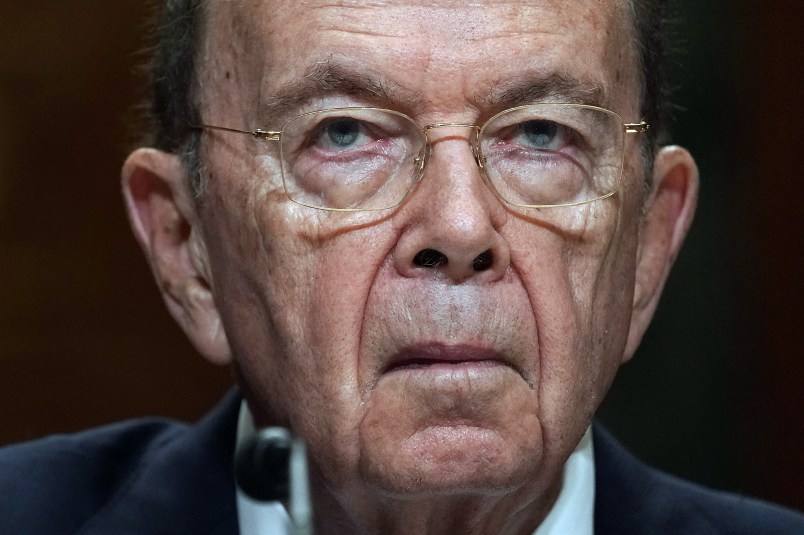NEW YORK – It was another long day of testimony for the Census Bureau’s top scientist in a federal trial in Manhattan.
A key issue in the case is whether it will discourage immigrants from participating on the census, and cause an undercount that diminish the political power of those communities.
Census Bureau official John Abowd’s second full day on the witness stand was focused on whether the effect of adding the citizenship question can be mitigated by follow-up efforts was the focus of the trial over the question Wednesday,
Abowd had previously testified Tuesday that it was the bureau’s assessment that the controversial question — which Secretary Wilbur Ross added against the advice of the bureau’s experts — would cause a decline in the self response rate, i.e. the percentage of households that would complete the decennial survey on their own.
The Justice Department lawyer Stephen Ehrlich, in his questioning of Abowd, sought to stress that the bureau had not offered similar evidence when it came to the effect the question would have on the census’ net headcount, after additional efforts known as non-response follow up (NFRU) had taken place.
The lawsuits against the Trump administration for adding the question allege that an undercount caused by immigrant populations spooked by the question will result in a shift in funding and political power away from those communities. Whether the question is allowed to stay on the census has huge implications on an assortment of issues, including voting rights, given the use of the census to allocate congressional seats and draw legislative districts.
Abowd’s testimony focused on the intricacies of the full decennial census process and how the bureau goes about filling in the gaps created by households that don’t fill out the survey on their own. Wednesday was also an opportunity for the Justice Department to clean up the testimony Abowd offered Tuesday to the ACLU lawyer Dale Ho, who grilled him on internal bureau assessments advising Ross that the question was costly and would result in less accurate data.
The “consequences” of the decline in self response “can be addressed” by the follow-up efforts, Abowd told Ehrlich. Those efforts include in-person visits by census enumerators, drawing upon other administrative records the Census Bureau has access to, and using proxies, like neighbors or landlords.
Abowd also weighed in on concerns raised by other experts that the current political climate is impairing the bureau’s follow-up capabilities. The anti-immigrant comments and actions of President Trump have been referenced by the challengers’ attorneys.
The citizenship question “aggravates” that climate, but doesn’t aggravate it in away that would translate into an undercount, Abowd testified.
Ho, when he was given another opportunity to grill Abowd Wednesday, focused on why the bureau hadn’t been able to provide evidence on whether the question would cause an undercount and why it hadn’t done other testing that proposed questions to the decennial census usually get. Abowd testified that the bureau had not produced “credible, quantitive evidence” that the follow-up efforts will mitigate the decline in self response.
Abowd confirmed that the quick turnaround the bureau had to analyze the question — it received a request for the question from the Justice Department last December and Ross announced his decision to add it in March — prevented the typical testing process that the bureaus’s quality guidelines dictate. He also testified that he didn’t think evidence on the undercount issue was necessary for the analysis the bureau provided Ross on the question in early 2018: that its assessment that the data itself would be of lesser quality would be enough for Ross to consider its recommendation against it.
Deposition and internal documents released in the litigation revealed that Ross, from early 2017, was set on adding the question, and that he called Attorney General Jeff Sessions personally to ask that the Justice Department request it.
Ho asked Abowd if, given more lead time, the bureau might have been able to undertake a study on the question’s effect on the net count.
Correct, Abowd said.
The administration is also stressing that the citizenship’s question presence on the American Community Survey — a longer survey that only goes out to a sample of households — was sufficient in lieu of typical testing.
Evidence — specifically, that non-citizens inaccurately declare themselves citizens on the ACS 30 percent of the time — uncovered when the bureau experts were studying the DOJ’s request for the census question is prompting the bureau to reevaluate the question on the ACS, Abowd revealed Wednesday. It is planning to review the issue, a process that could result in the question being removed from the survey, Abowd testified.
Throughout the day, Judge Furman interrupted to ask questions of his own. He asked Abowd specifically about how the inaccurate data, regardless of whether there was an undercount, affects government planners
You can’t say who would benefit more or who would benefit less, Abowd testified, you say there’s been a misallocation of the resources.







High heat will sear the exterior and seal in the juices …
while leaving the insides tender —
Well, in my book “misallocation” of my tax funding, is a HUGE problem!
This is so close to the requests to stop counting ballots of valid voters/taxpayers!
Mueller appears to prefer the reverse sear method, where you slowly heat the entire target until almost done, then quickly expose it to a high-temperature sear for the flavors of smoke and caramelization.
Gotta feel sorry for the scientist. He know Ross and Co. are crooks, but does not want to get fired. So he is leaving breadcrumbs so he is asked the right questions (which Ho is asking) to which he provides honest answers.
No fun…
Doesn’t this bring to mind Nazis or the Stasis, or any other authoritarian methods like informers to gather info on the population?